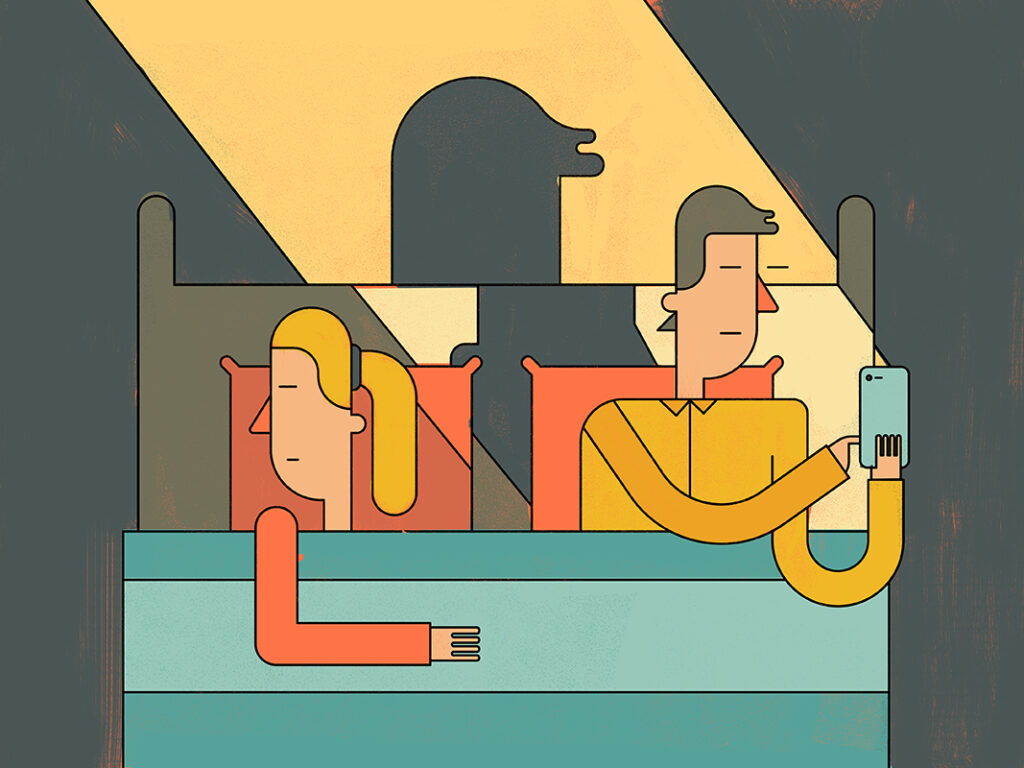Takeaways
- After-hours work interruptions take a psychological toll on employees.
- Switching in and out of “work mode” during personal time is mentally draining and can lead to exhaustion.
- But after-hours interruptions that bring closure to a task or relief can be beneficial.
- Phone calls are the most intrusive communications technology, followed by text messages and then email.
New research from the Terry College of Business finds an important step to good work-life balance comes down to how you communicate with the office after hours.
A new paper published in MIS Quarterly examines for the first time how different forms of communications technology affect employees when they are off the clock.
“The boundaries between work life and personal life have become blurred because of the ubiquitous nature of information and communication technology,” said Elena Karahanna, research co-author and the L. Edmund Rast Professor of Business. “There are benefits to that, like the flexibility to work from anywhere at most any time. But there are negative consequences too.”
“These interruptions into our personal lives — the texts, emails or phone calls that come from work after hours — take a toll on us,” she said. “Thinking about the costs led us to study this issue.”
Karahanna and her co-author found that work-related interruptions after hours affect employees through three mechanisms: interruption overload, psychological transition and task closure.
At first, work-related interruptions may not be problematic. But as those interruptions build up, negative outcomes start to manifest. Stress builds. Good will and cheery moods fade away. Burnout ensues. The work-life balance becomes tenuous.
“In our personal lives, we may have slack resources. We might have slack time that we can allocate to work-related tasks if we need to,” Karahanna said. “The issue arises when the number of interruptions grows so large that it depletes our spare time and energy. When this happens, you’re tapping into critical reserves that you need in order to function well and to meet the responsibilities of your personal life.”
In part that’s because the psychological transition that employees must perform to switch in and out of “work mode” is mentally draining.
“When you are at dinner or your child’s ballgame and you get a phone call from work, you have to move into work mode,” Karahanna said. “Once the interruption ends, you have to transition back into your personal life. These transitions can cause ruminative thoughts about work to linger. When you’re preoccupied with work, your personal time feels more fragmented and invaded. You feel as though you’re always on, and that leads to exhaustion.”
Not all interruptions are bad, however. Some can put a preoccupation to rest — a concept the researchers called task closure.
“When interruptions that bring closure happen outside of work hours, like getting a call that the last thing to finish a big project got done, that’s a good thing. Then you can end your preoccupation and focus on your personal life,” Karahanna said.
The researchers also found that emails, phone calls and text messages have different consequences for employees.
“The technology you use matters,” she said. “We found that email interruptions allow workers to be in control of when they can respond. They can find an opportunity when it’s least disruptive to their personal lives. That kind of interruption has almost no negative effects.”
But when employees feel they have no control over the timing of the interruption, as with a phone call, the psychological transition and personal life fragmentation are more acute.
“Unlike email, the synchronous or near-synchronous nature of calls and texts has a lot of negative consequences,” Karahanna said. “Phone calls have the largest effect on feeling exhausted at work and at home. The effects of text messaging are not quite as negative as phone calls but worse than email.”
The paper, “Life Interrupted: The Effects of Technology-Mediated Work Interruptions on Work and Nonwork Outcomes” was co-authored by Adela Chen, an assistant professor of computer information system at Colorado State University and a PhD graduate of the University of Georgia.

